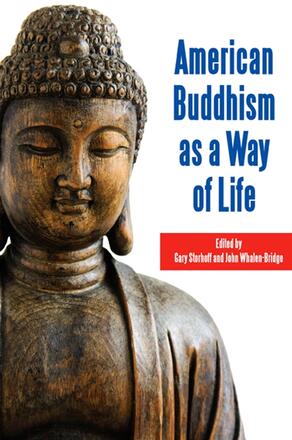
American Buddhism as a Way of Life
Alternative formats available from:
Explores a range of Buddhist perspectives in a distinctly American context.
Description
The US seems to be becoming a Buddhist country. Celebrity converts, the popularity of the Dalai Lama, motifs in popular movies, and mala beads at the mall indicate an increasing inculcation of Buddhism into the American consciousness, even if a relatively small percentage of the population actually describe themselves as Buddhists. This book looks beyond the trendier manifestations of Buddhism in America to look at distinctly American Buddhist ways of life—ways of perceiving and understanding. John Whalen-Bridge and Gary Storhoff have organized this unique collection in accordance with the Buddhist concept of the Three Jewels: the Buddha, the Dharma, and the Sangha. The Buddha section discusses the two key teachers who popularized Buddhism in America: Alan Watts and D. T. Suzuki and the particular kinds of spirituality they proclaimed. The Dharma section deals with how Buddhism can enlighten current public debates and a consideration of our national past with explorations of bioethics, abortion, end-of-life decisions, and consciousness in late capitalism. The final section on the Sangha, or community of believers, discusses how Buddhist communities both formal and informal have affected American society with chapters on family life, Nisei Buddhists, gay liberation, and Zen gardens.
Gary Storhoff is Associate Professor of English at the University of Connecticut at Stamford. John Whalen-Bridge is Associate Professor of English at the National University of Singapore. They are the coeditors of The Emergence of Buddhist American Literature, also published by SUNY Press.